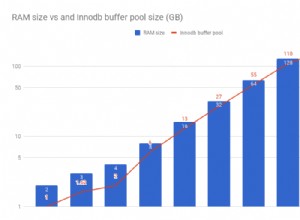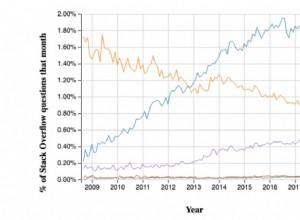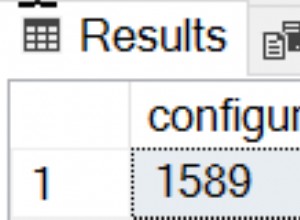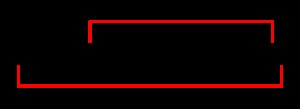Ich habe einen Test konstruiert, der OFFSET, Cursor und ROW_NUMBER() vergleicht. Mein Eindruck von ROW_NUMBER(), dass die Geschwindigkeit unabhängig davon, wo Sie sich in der Ergebnismenge befinden, konsistent ist, ist richtig. Diese Geschwindigkeit ist jedoch dramatisch langsamer als entweder OFFSET oder CURSOR, die, wie auch mein Eindruck, in der Geschwindigkeit ziemlich gleich sind, wobei beide in der Geschwindigkeit abnehmen, je weiter Sie zum Ende des Ergebnisses gehen.
Ergebnisse:
offset(100,100): 0.016359
scroll(100,100): 0.018393
rownum(100,100): 15.535614
offset(100,480000): 1.761800
scroll(100,480000): 1.781913
rownum(100,480000): 15.158601
offset(100,999900): 3.670898
scroll(100,999900): 3.664517
rownum(100,999900): 14.581068
Das Testskript verwendet sqlalchemy, um Tabellen und 1000000 Zeilen mit Testdaten einzurichten. Es verwendet dann einen psycopg2-Cursor, um jede SELECT-Anweisung auszuführen und Ergebnisse mit den drei verschiedenen Methoden abzurufen.
from sqlalchemy import *
metadata = MetaData()
engine = create_engine('postgresql://scott:example@sqldat.com/test', echo=True)
t1 = Table('t1', metadata,
Column('id', Integer, primary_key=True),
Column('d1', String(50)),
Column('d2', String(50)),
Column('d3', String(50)),
Column('d4', String(50)),
Column('d5', String(50))
)
if not engine.has_table('t1'):
conn = engine.connect()
t1.create(conn)
# 1000000 rows
for i in range(100):
conn.execute(t1.insert(), [
dict(
('d%d' % col, "data data data %d %d" % (col, (i * 10000) + j))
for col in range(1, 6)
) for j in xrange(1, 10001)
])
import time
def timeit(fn, count, *args):
now = time.time()
for i in xrange(count):
fn(*args)
total = time.time() - now
print "%s(%s): %f" % (fn.__name__, ",".join(repr(x) for x in args), total)
# this is a raw psycopg2 connection.
conn = engine.raw_connection()
def offset(limit, offset):
cursor = conn.cursor()
cursor.execute("select * from t1 order by id limit %d offset %d" % (limit, offset))
cursor.fetchall()
cursor.close()
def rownum(limit, offset):
cursor = conn.cursor()
cursor.execute("select * from (select *, "
"row_number() over (order by id asc) as rownum from t1) as foo "
"where rownum>=%d and rownum<%d" % (offset, limit + offset))
cursor.fetchall()
cursor.close()
def scroll(limit, offset):
cursor = conn.cursor('foo')
cursor.execute("select * from t1 order by id")
cursor.scroll(offset)
cursor.fetchmany(limit)
cursor.close()
print
timeit(offset, 10, 100, 100)
timeit(scroll, 10, 100, 100)
timeit(rownum, 10, 100, 100)
print
timeit(offset, 10, 100, 480000)
timeit(scroll, 10, 100, 480000)
timeit(rownum, 10, 100, 480000)
print
timeit(offset, 10, 100, 999900)
timeit(scroll, 10, 100, 999900)
timeit(rownum, 10, 100, 999900)




